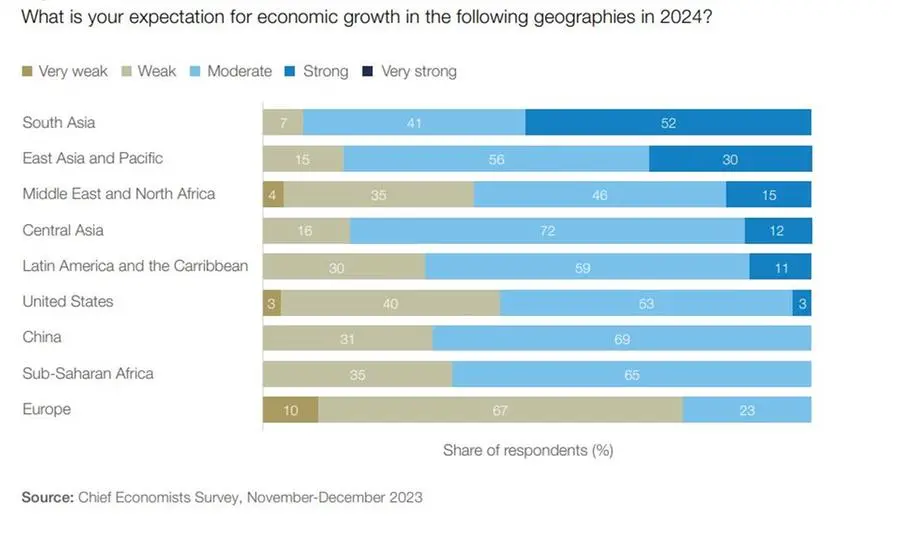PHOTO
The many uncertainties that dominated the outlook over the last year continue to cloud near-term economic developments, according to the World Economic Forum (WEF), which also noted that 56% of chief economists expect the global economy to weaken in 2024, while another 43% foresee unchanged or stronger conditions.
Businesses and policymakers face persistent headwinds and continued volatility as global economic activity remains slow, financial conditions remain tight and geopolitical rifts and social strains continue to grow, the WEF said in its Chief Economists Outlook report.
The IMF forecasts a slight decline in global growth to 2.9% in 2024, down from 3% in 2023.3 "The relative resilience in global figures continues to rely on the growth performance of emerging economies, while the momentum in advanced economies is fading," the WEF noted.
Almost seven out of ten chief economists expect the pace of geoeconomic fragmentation to accelerate in 2024.


Most respondents said it will stoke volatility in the global economy (87%) and in stock markets (80%). There appears to be an equally strong consensus that recent geopolitical developments will increase localization (86%) and strengthen geoeconomic blocs (80%), WEF said in its report.
However, there are positive developments, such as easing inflationary pressures and advances in the field of artificial intelligence (AI).
Robust economic activity is still expected in South and East Asia. China remains an exception, with the previous combination of strong and moderate growth expectations being replaced with largely moderate (69%) expectations for 2024.
Six out of 10 respondents are expecting moderate or stronger growth this year in the US and the Middle East and North Africa.
In the Middle East and North Africa, the expectations have slightly weakened reflecting broader uncertainty about the trajectory of the Israel-Hamas war and impacts on the wider region. Although 61% still foresee moderate or stronger growth in 2024, regional prospects remain clouded by weak oil demand and a sharp contraction in tourism, the survey noted.
In the US, 56% of economists surveyed foresee a moderate or higher growth in 2024, compared to 78% in the previous survey. In Europe, 77% expect weak or very weak growth in 2024. Economists highlighted that both economies confront tight lending conditions, a slowdown in manufacturing and exposure to geopolitical rifts.
(Reporting by Seban Scaria; editing by Daniel Luiz)
(seban.scaria@lseg.com)





















